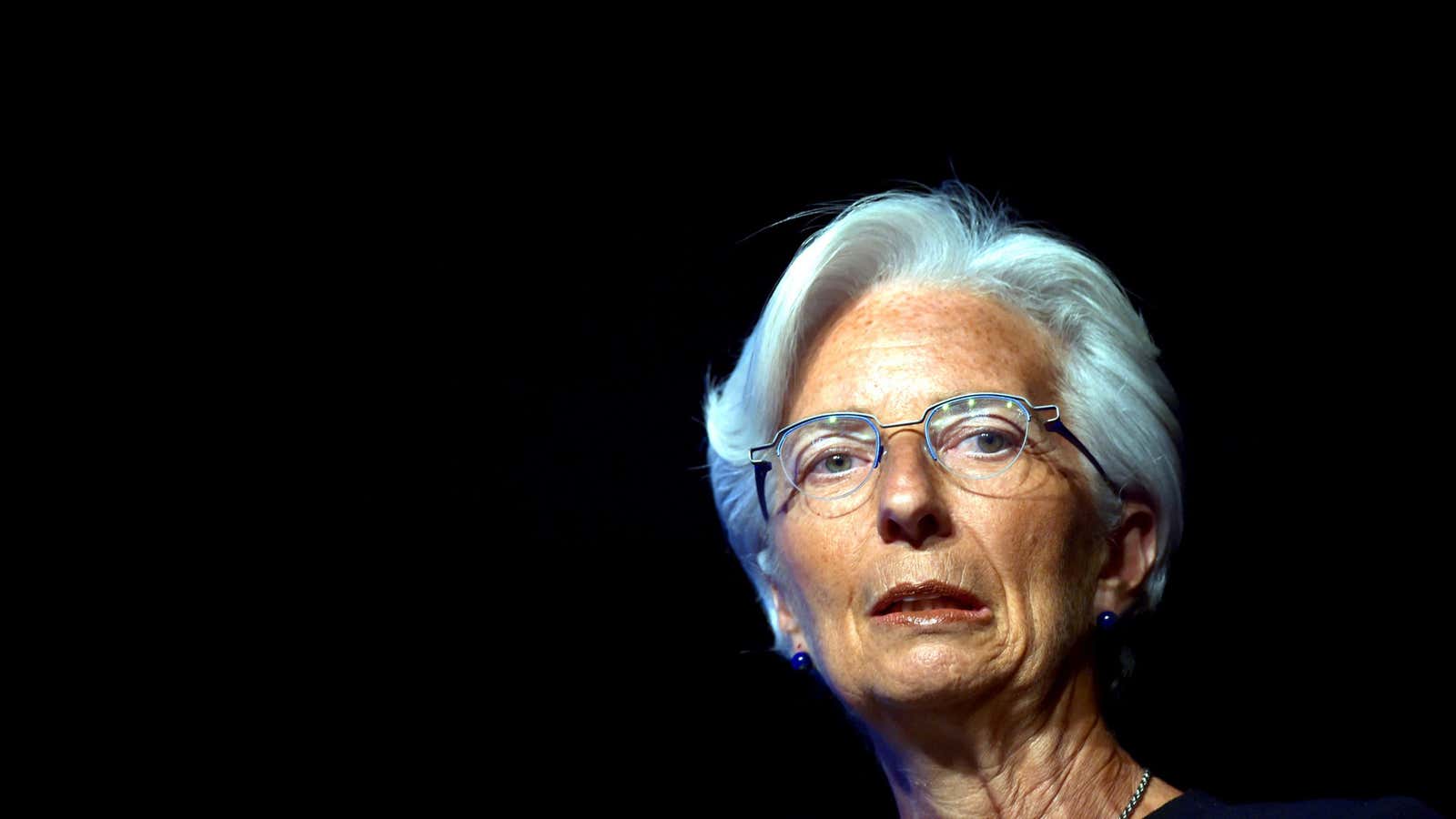The International Monetary Fund faces a stern test of its independence that could have repercussions far beyond the fate of the Greek economy, by far its biggest headache of the moment.
Euro-zone finance ministers are expected to approve a new rescue deal for Greece after months of contentious negotiations on debt relief and austerity ended in the capitulation of Greece’s left-wing government to its creditors. Those creditors include other euro zone governments, the European Central Bank, and the IMF.
The talks have led Greek leaders to vote today on further cuts to public spending and reforms designed to liberalize its sclerotic labor markets and clear failed loans from the books of its overwhelmed banks. These moves are expected to unlock a three-year bailout agreement worth some €85 billion ($95 billion)—or at least a bridge loan to cover a €3.2 billion bond repayment due to the ECB next week.
Nonetheless, the IMF has made clear that Greece’s debt load, expected to balloon to more than twice its annual economic output in 2016, is not sustainable without some form of relief—that is, a meaningful reduction in what Athens owes. The IMF’s rules prohibit lending to countries with so much debt that they are not able to pay the fund back. That means even though the IMF endorses the reforms required by the new Greek bailout agreement, it likely won’t sign on to participate in this new loan program unless there is enough debt relief to make repayment a reasonable possibility.
Test of mettle
While the IMF’s financial contribution would be welcome, what’s more important to Greece’s other creditors is the organization’s imprimatur as the global financial authority. This eases the passage of the bailout program in Europe’s parliaments, especially Berlin’s, where IMF participation is considered an essential condition for approval.
Now, Germany’s finance ministry is criticizing the proposed bailout terms as too lenient, even as it insists that the IMF and its director, former French finance minister Christine Lagarde, must sign off on a program that breaks the fund’s rules.
The last time this happened, with Greece’s first bailout in 2010, the IMF eventually broke under the pressure.
“The IMF was strong-armed into lending to Greece at massive scale in 2010,” Brett House, a former IMF staffer who is now chief economist at Alignvest Investment Management, told Quartz. “The board overrode the IMF’s own rules against lending into unsustainable situations and, in a terrible governance move, rewrote the IMF’s policies in the midst of its lending decision to make the loan to Greece possible.”
Then-IMF director Dominique Strauss-Kahn recently wrote that he felt the IMF had no choice but to join the EU to rescue Greece the first time, when a weakened global financial system faced broader exposure to the country’s economic troubles. But even he expressed regret for misdiagnosing the problem and now urges Greece’s creditors to adopt a policy of debt relief.
Can the IMF stick to its principles this time around? The odds may be better, in part thanks to divisions in Europe. The ECB and the European Commission wrote their own reports today expressing concerns that Greece’s debt is still not sustainable, concluding that debt relief will be necessary.
Washington is watching
The other factor that strengthens the IMF’s hand is the US position—Treasury Secretary Jack Lew has endorsed debt relief for Greece and remained engaged with the negotiations over the summer.
“Whether the IMF holds to its position or not depends entirely on the US Treasury,” House says. He adds:
In 2010, the US supported the policy fudge to make the loan to Greece in order to prevent Europe blowing up into a larger global crisis. This time around, the US seems to want Europe to put more of its own skin in the game. So long as the US sticks with this view, Lagarde will remain firm.
But if the IMF bows again to European officials’ insistence that regional politics trump economic reality, it will lose further credibility before the developing economies that are grasping a growing share of global economic power. House says the fund wants to “escape from the cloud of perception that it has been captured by Europe.”
But it may be too late. David Lipton, the American deputy director of the IMF, recently said he expects an end to the informal practice that the fund’s director come from Europe.
“The fact that there’s been so much focus on crisis in the United States right at the early stages of the global financial crisis and with Europe, is going to lead to a sense that there has to be a broader pool for the leadership role,” he told the BBC.
